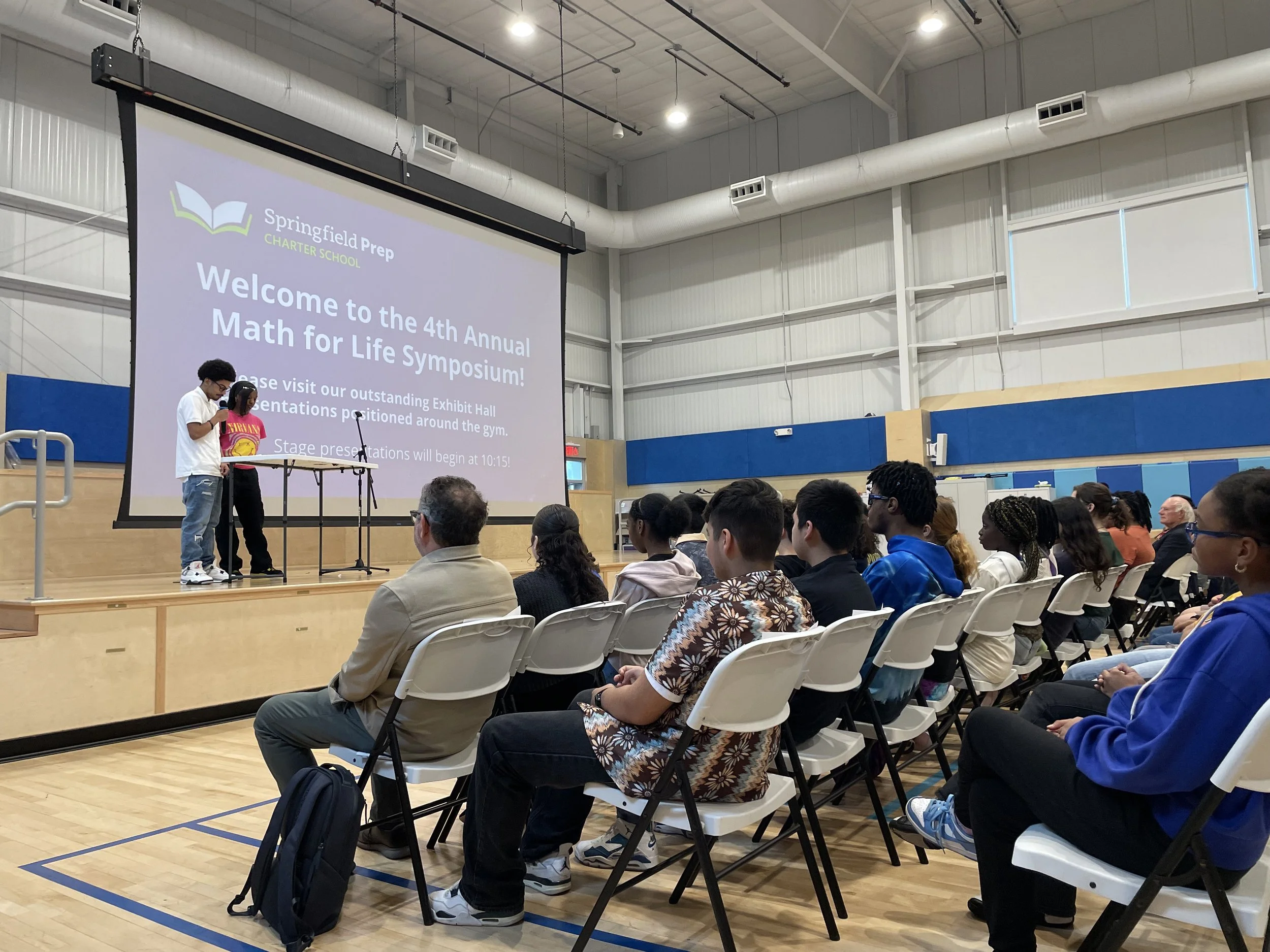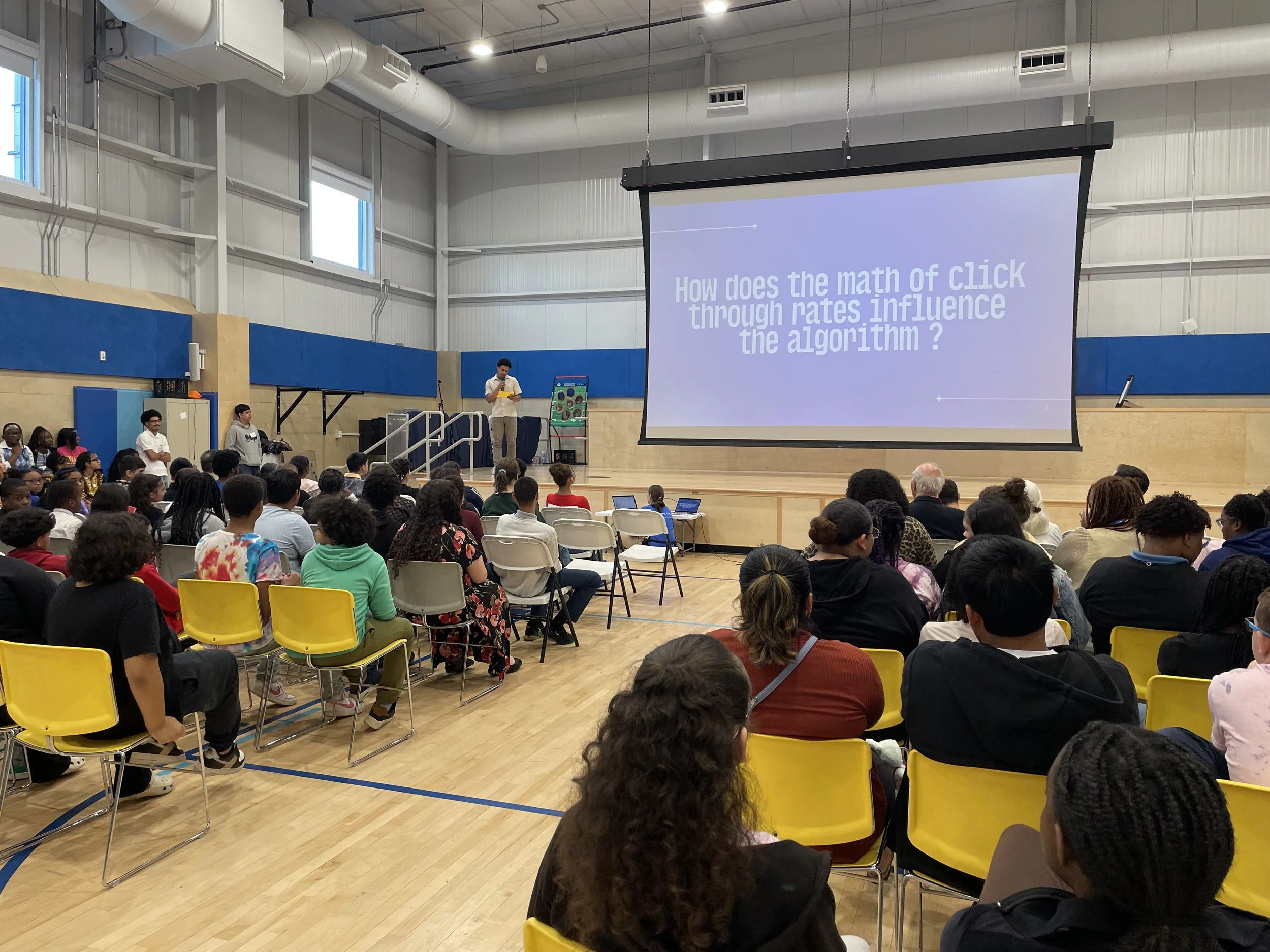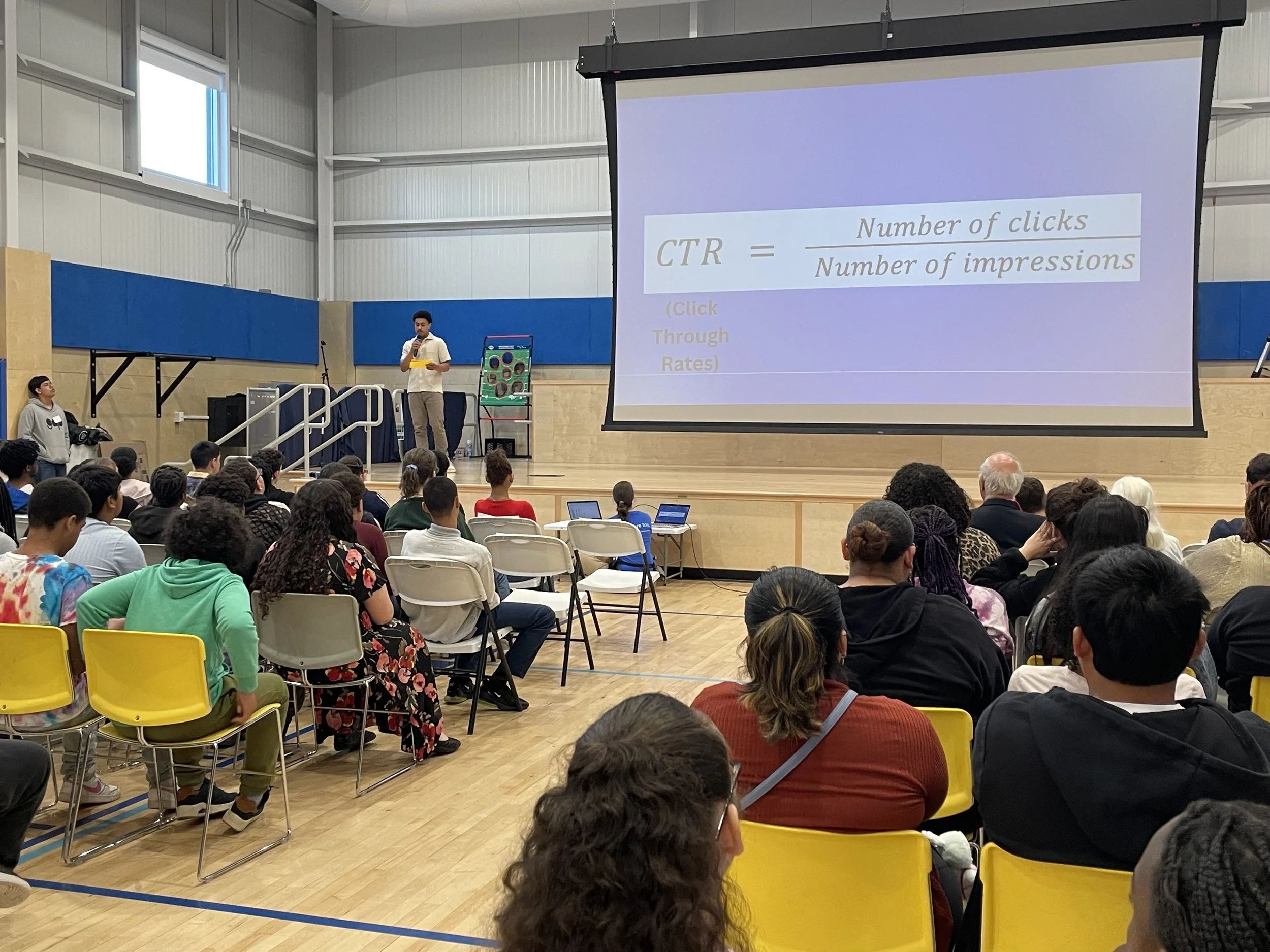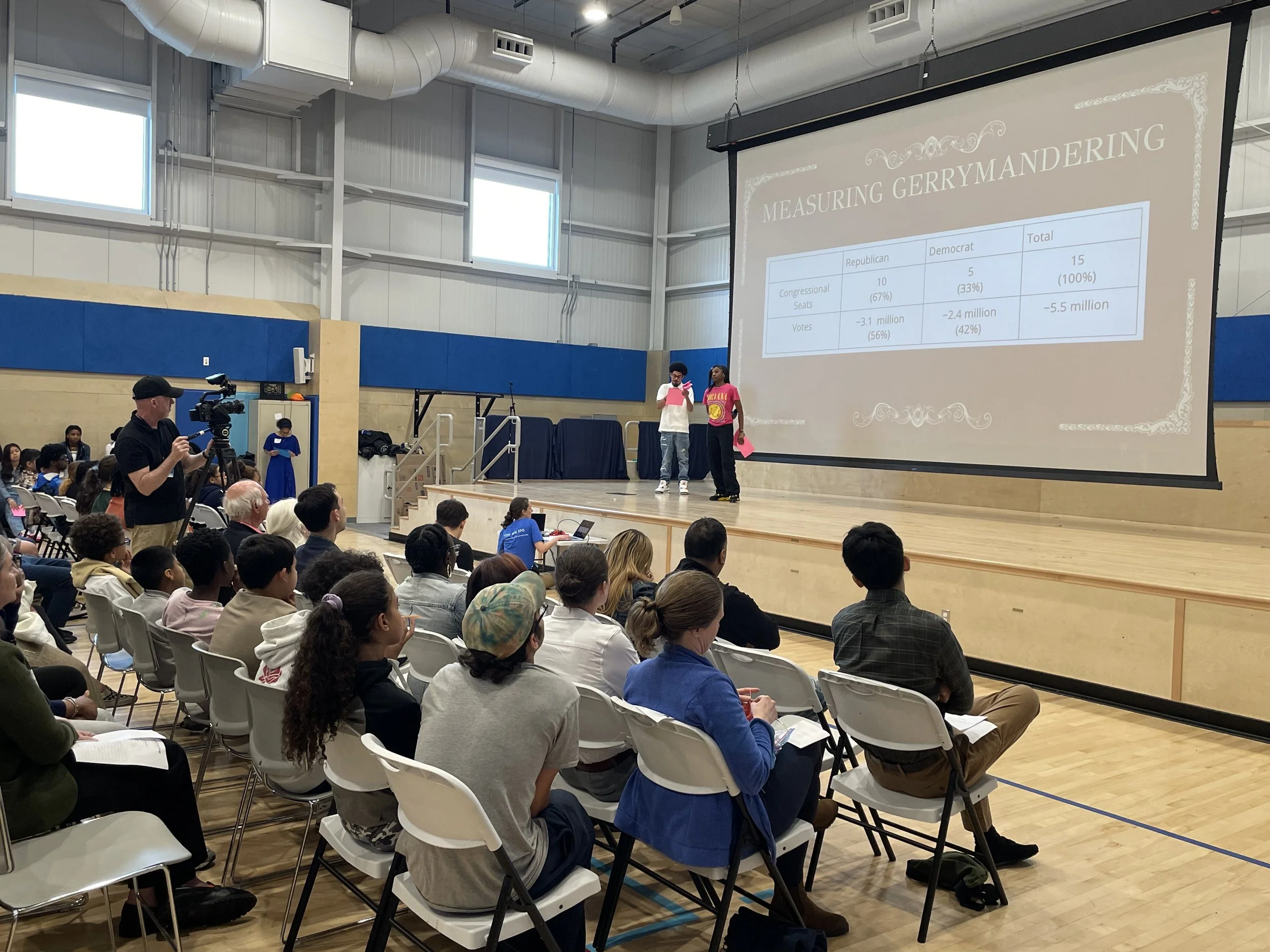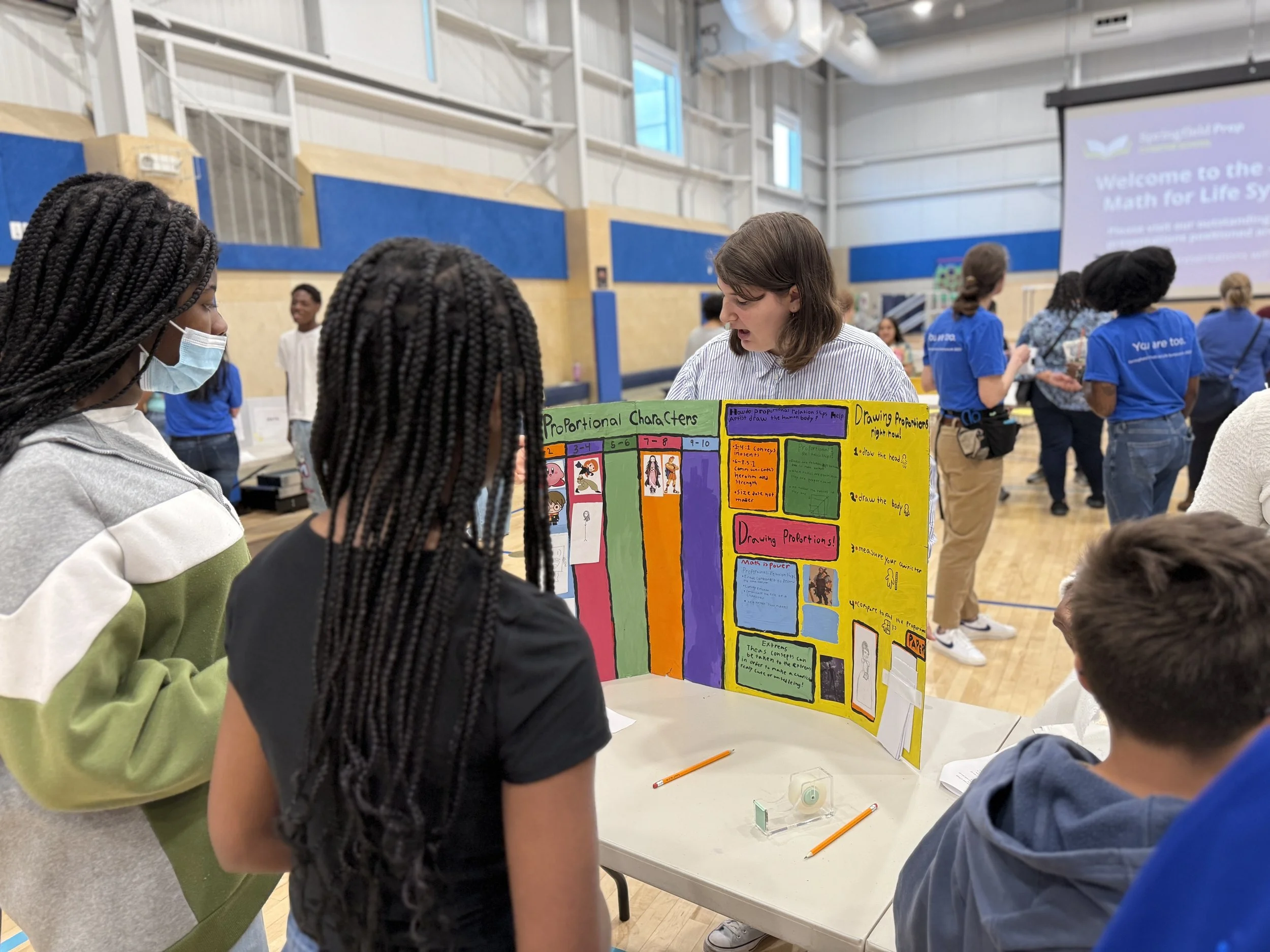Beyond the Calculator: Why Math Matters Now More than Ever
by Meaghan Graul, Middle School Math Teacher and Academic Dean
This article was originally published in the Springfield Republican on September 1, 2025. Shared here with full credit to the publication.
The old joke goes: “You won’t always have a calculator in your pocket.” But now we do, and the joke’s on us if we think that makes math less important. In fact, it makes it more meaningful and urgent than ever. In a world shaped by algorithms and manipulated by misinformation, our kids can’t afford to be numerically naive. They need to understand how numbers drive the headlines they read, the apps they use, and the choices that shape their futures.
Math is everywhere, whether we see it or not. Those who do understand how numbers, patterns, and data shape everything from policy to TikTok hold a lot of power. This reality demands a shift in how we think about math education.
It is no longer enough for students to simply know how to "do the operations." We need young people who can ask the right questions, not just solve the ones already written for them. We need graduates who can model real-world problems, interpret complex data, and recognize whether numbers are being used to clarify the facts or manipulate them.
As educators and parents, we play a crucial role in shifting this mindset. Instead of asking students, Where do you see math in the real world? We must flip the question and instead ask What math is hiding in the things you already care about?
When students connect math to the things they love, be it dance, gaming, sports, fashion, or social justice, math becomes a tool for empowerment, not just a school subject.
At Springfield Prep, we’ve put this into practice. Every year, our middle school students complete a Math for Life project. The premise is simple: choose any topic you care about, and then explore one question: Where do you see the math? Every year, the answer surprises but excites students, and their projects blow us away.
This past spring, students investigated topics as diverse as art, sports, and democracy. One group studied how proportional reasoning influences choreography. Another student tracked humanitarian aid flows into Gaza and learned how organizations calculate food insecurity. Eighth graders who were also taking civics explored the mathematics of gerrymandering and how district shapes can distort democracy.
In every case, students didn’t just find math, they found meaning. They saw how numbers influence decisions and shape narratives. In doing so, they gained something even more important than a correct answer: agency.
This shift doesn’t happen on its own. As teachers, we must commit to showing students that math isn’t confined to tests or worksheets. It’s in headlines, hospitals, sports, and all over social media. Throwing a “real-world” context into a word problem isn’t enough. We must help students truly see math in what they care about, even if that means stepping beyond the curriculum and into questions that don’t have clean answers.
As parents, we need to let go of the idea that our children’s math experience should mirror our own. We didn’t grow up generating data every time we clicked, tapped, or walked down the street. They do. Their world is different, and their math must be too.
When we feel the urge to groan about “new math” or teach them the quick trick that got us through algebra class, we must bite our tongues. Instead, we should tell and show our kids that we are math people, even if we didn’t grow up believing it. When we model curiosity and persistence, we give them permission to see themselves as capable math people, too.
In a world increasingly run by data and algorithms, math is no longer optional. It's essential. We must stop teaching kids to just solve problems on paper, suggesting that math stops at the classroom door. They don’t need pretend context, they need purpose. Let’s teach them to see problems in their world and know they have the power to solve them.
PICTURES FROM THE 2025 MATH FOR LIFE SYMPOSIUM
Meaghan has taught middle and high school math for 14 years. She has a bachelor’s degree in economics from Harvard College and a master’s degree in math education from Lesley University. She resides in Springfield, MA.




